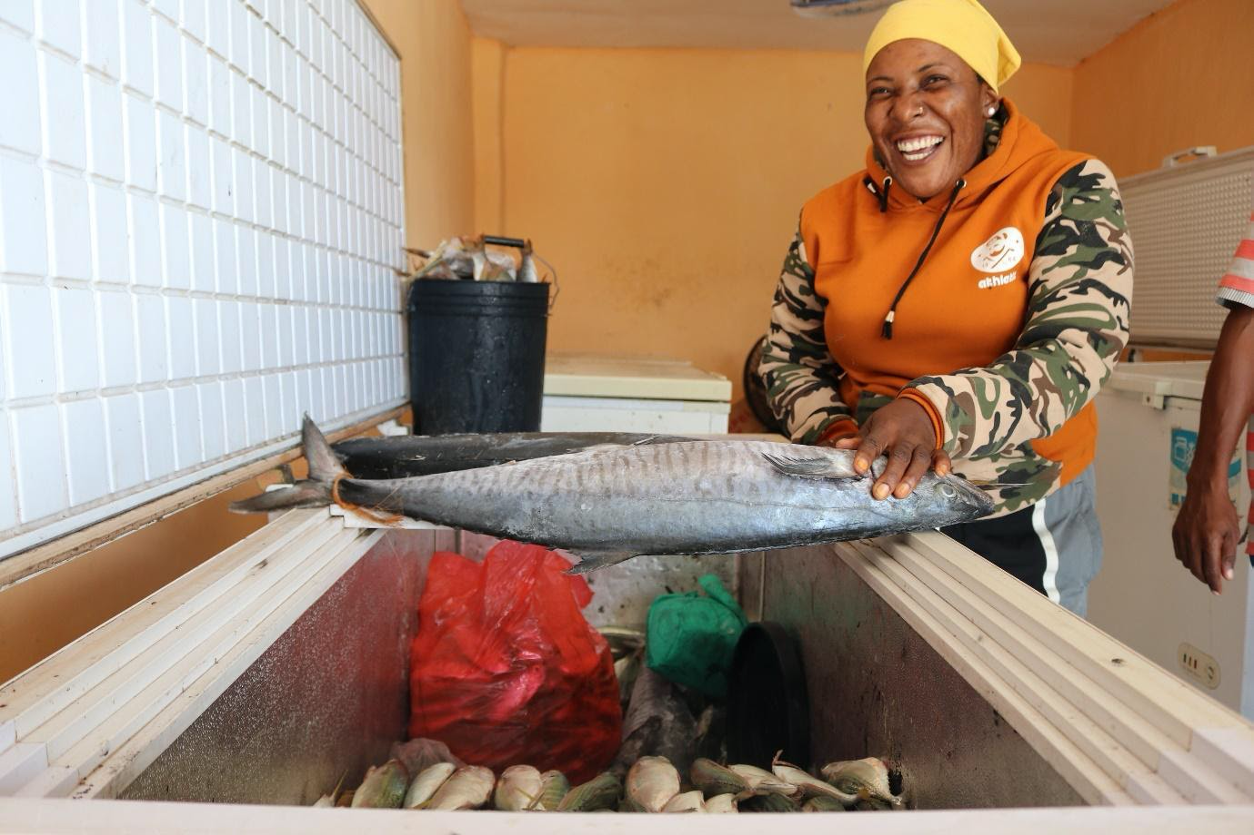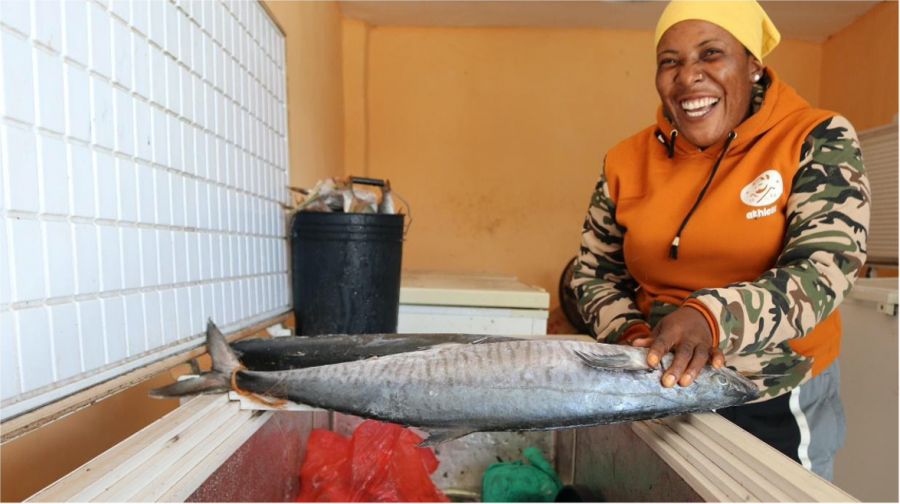05 September 2021 | Mafia Island, Tanzania
Please tell us how it all started.
I had to drop out of secondary school because my parents could not afford it anymore. To support my family, I started selling fried fish on the streets. I bought the fish from local fishermen. But I did not earn much and my partner was often gone for months at a time, so I had to stay with my mother to survive. Also when I became a mother myself. In the years that followed, not much changed in my financial situation and I was concerned about how I would be able to get my two children through school.
In 2013, my friend Mariam introduced me to the Village Community Banks (VICOBA) group, a community microfinance group in Tanzania. Thanks to a loan, I was able to save some money to invest it in my small business. It enabled me to buy and weigh my fish at TANPESCA, a famous fish processing and export factory located on Mafia Island and in Dar es Salaam, Tanzania’s largest city. An important step for my business, as I no longer needed a middleman to sell my product.
VICOBA continued to grow, and my business did as well. Later on, other loans helped me to invest in materials, such as fishing nets, and means of transportation. The journey I started in 2013 enabled me to send my children to school and give them a nice home, which makes me very happy.

